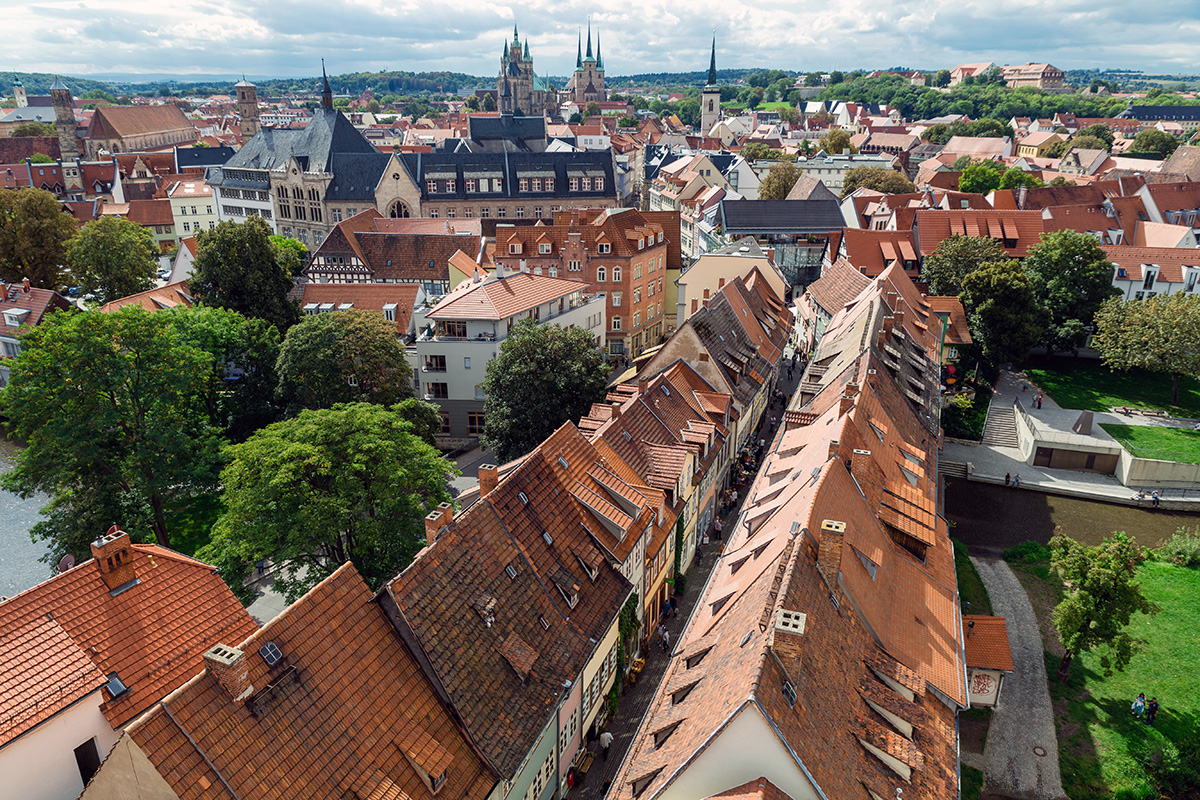Far Left and Far Right Seduce East German Voters
Ossie Revolt
Political life in Germany was thrown into disarray after the ruling coalition of Chancellor Olaf Scholz was dealt a crushing defeat by voters in Thuringia and Saxony. In the former, the Alternative for Germany (AfD) cruised to victory and in the latter it’s down to a toss-up between the nationalist party and the centre-right Christian Democratic Union (CDU).
Officially designated an extremist party, the AfD will find it difficult to monetise its stunning victory. Securing 32.8%of the vote in Thuringia, the party needs a coalition party to in order to form a government. However, no other party is willing to engage or cooperate with the AfD. Local observers point out that, based on yesterday’s vote, assembling a majority in the state legislature seems impossible without breaching the cordon sanitaire that seeks to deny the AfD a path to power.
Only a garbled coalition that includes parties from the sensible right to to rather less sensible far left could possibly form a government. Even in opposition, the AfD would have enough seats to block appointments and paralyse legislative initiatives.
The traditional parties that were chastised by East German voters now need the support of another newcomer, the Sahra Wagenknecht Alliance (BSW), to cobble together working majorities in both Thuringia and Saxony.
Launched in January by the cabal of former communists that coalesced around Sahra Wagenknecht, the BSW was too young to have been recognised as an extremist party.
Left Meets Right
Mrs Wagenknecht rose to prominence in the Party of Democratic Socialism (PSD), successor to the Socialist Unity Party of Germany which ruled East Germany right up to that country’s dissolution in 1990. After the PSD merged with The Electoral Alternative to form The Left (Die Linke) in 2007, Mrs Wagenknecht entered the Bundestag and became her party’s spokesperson on economic policy.
Disagreements over immigration, mandatory covid vaccinations, and the war in Ukraine drove Mrs Wagenknecht and six other Bundestag members for Die Linke to consider leaving. The final push came when Die Linke failed to attain the 5% voter threshold in the 2023 state elections of Bavaria and Hesse whilst the far-right Alternative für Deutschland easily secured 10.2% and 13.1% of the vote respectively. Mrs Wagenknecht proposed to beat the AfD at its own game by embracing more radical policy proposals without running afoul of the constitution.
In fact, on immigration, vaccinations, and Ukraine both new parties are hardly distinguishable. Both Mrs Wagenknecht and Björn Höcke, AfD leader in Thuringia, want Germany to immediately stop deliveries of weapons to Ukraine and left all sanctions imposed against Russia. The two argue that German interests are best served by insisting on negotiations to end the fighting – and not by provoking Moscow.
The result of yesterday’s elections shows that 34 years after German reunification, all is not well in the former communist east. ‘Ossie’ voters, already unhappy before the 2021 federal election, have become disillusioned with the ruling coalition of Chancellor Scholz over inflation, high energy prices, depopulation, and the attendant lack of services available in the small towns and villages of the eastern states.
Paradoxically, voters also oppose immigration, a topic that became toxic after a rejected asylum seeker from Syria awaiting deportation stabbed three people to death in Solingen.
Déjà Vu
In a disconcerting repeat of history, in 1932, Thuringia became the first German state to afford the Nazis an electoral victory which propelled the party into power with 42.5% of the vote. Local AfD strongman Höcke repeatedly called for ‘an about-face’ in Germany’s culture of atonement for Nazi atrocities. In a speech on the eve of the election in Erfurt, the state capital, Höcke said that the AfD is the only one able to stop ‘cartel parties’ from replacing the German people with “a multicultural society under a totalitarian dictatorship.”
In May, Höcker was fined €13,000 by a state court in Halle for using a banned Nazi phrase at a political rally.
Leftists state premier Bodo Ramelow of Thuringia laments that during the election campaign facts have been buried under a pile of emotional garbage: “Our state has low unemployment and attracts a high level of inward investment. However, the premier agrees that many people in former East Germany still feel second-class citizens and are tired of being portrayed as unrepentant communists or proto-fascists in the media.
André Brodcoz, a political scientist at the University of Erfurt, is worried that an increasing number of AfD voters are no longer open to fact-based reasoning and justify their political choice only on narrow ideological grounds.
Scraping By
Chancellor Scholz’ centre-left Social Democrat Party (SPD) suffered its worst-ever defeat in Thuringia, narrowly meeting the election threshold with just 6.2% of the vote. The SPD’s coalition partners fared even worse with only the Greens managing to preserve their representation in the legislature of Saxony with just 5.2% of the vote.
AfD co-leader Alice Weidel called the outcome ‘a historic success’ and ‘a requiem’ for the coalition of Chancellor Scholz. Meanwhile, Sahra Wagenknecht celebrated the fact that no new party had performed ‘so well’ as her BSW did with its first election run. Mrs Wagenknecht’s party is now kingmaker in both Thuringia and Saxony. She promised to demand ‘meaningful policy changes’ in return for supporting any coalition.
The suffering is not over yet for Olaf Scholz’ coalition. On 22 September voters in Brandenburg, another former East German state, head to the polls, apparently ready to deliver another triumph to the AfD.
Cover photo: Thuringia state capital Erfurt and it famous market bridge (Krämerbrücke), built in 1325 and spanning the Breitstrom. It is the oldest inhabited bridge in Europe.
© 2014 Photo by Eremeev


